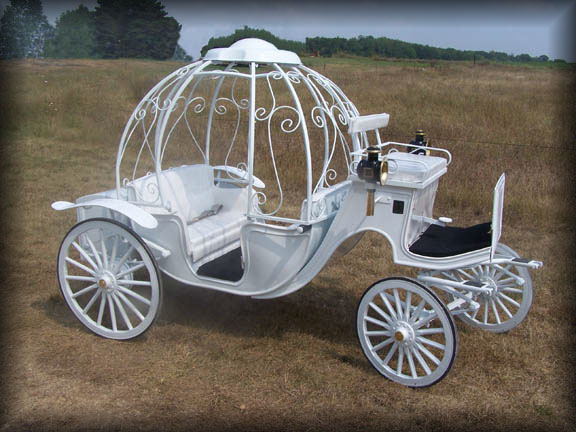Motivation Plus Mobilization: Coaching For Success At Lifestyle Improvement

“I just don’t seem to have the motivation to really make changes.” This is a lament frequent to the ears of health and wellness coaches. Our clients are often puzzled by a lack of success in their efforts to start living a healthy lifestyle, or keep such efforts going. They blame it on either a lack of motivation to get started, or that their motivation fades as old habits reassert their rule.
Coaches help their clients examine and re-examine whatever sources of motivation they have mentioned. They help their clients revisit their desire to change and what drives it. They look at fear-based motivations such as not wanting to have an illness get worse, or not wanting to develop the maladies that have been prevalent in their family. They look at the love-based motivators like caring enough about ones self, wanting to be there for their grandchildren as they grow up, the intrinsic joy of dancing, swimming, tasting delicious and nutritious food, etc.
Perhaps the coach concludes, like their client, that these motivators just ‘aren’t enough’. The next step is to begin a usually fruitless search for additional motivators. Their client runs out of ideas and coaching descends into ‘what about this?’ suggestion after suggestion. What is really going on? What’s a more productive avenue to explore?
 Got the gas, but no car?
Got the gas, but no car?
Your client may have enough motivation. They may in fact, have listed three, four or more reasons they want to change. They may possess a terrific combination of motivators. Motivation is like the fuel for a vehicle to run on. The problem might not be the fuel, but the lack of an actual vehicle! The vehicle is a methodology, a structure, and a process that facilitates change. To get where they need and want to go, the client needs both a vehicle to carry them and the fuel to put in it.
How do we mobilize motivation? By providing our client with methodology. I’ve always been amazed at how simple successful change can sometimes be when clients have a well-developed way of achieving it.
Coaches often hear their client’s frustration at wanting to improve their lifestyle, but not having much of a history of success at it. If we inquire if they have ever started their change efforts by first taking stock of their health and wellness in a really clear way, we find they rarely have. If we ask if they have ever begun by first developing a thorough plan as to how they will make their changes happen, we often find them admitting that they usually just get their will powered amped up and set some sort of goals. Rarely have they ever carried out their change efforts with the help of an ally who helped them with support and accountability. And, all too seldom have they ever keep track of their efforts at change and actually written it down.
A mentee of mine was recently coaching a middle-aged woman who complained of a lack of motivation holding her back. As we began listening to the recording, the coach helped the client describe at least four strong motivators that had propelled her into action. She realized that when her children were younger playing with them had provided her with more activity and energy. Now her energy was low and she wanted to reclaim that. She also talked about hoping for grandchildren and wanting to be a very active part of their lives. The client was concerned about her advancing age and not wanting to lose the health she had. She didn’t want to become a burden to anyone. She went on to list at least two more motivators.
As the client described her lack of success at change, her conclusion was that she was just lacking motivation. She described coming home from work tired and just fixing a quick (though not necessarily healthy) meal and watching television in the evening. “I just don’t have the motivation I need” the client lamented. She intended to be more active and intended to eat better. All she had for a plan were intentions.
Doing a great job of coaching, my mentee gently confronted his client and recited the substantial list of motivators that she did, in fact, have. He questioned whether it was a ‘lack of motivation’, or something else that was missing.
Clients try to figure out what is keeping them stuck. Unless it’s a matter of identifiable internal or external barriers, clients often say it’s a lack of motivation. They are looking for an explanation and, frankly, they often don’t know what else to call it.
Co-Creating The Coaching Alliance
An often ignored part of coaching is the work it takes to Co-Create The Coaching Alliance. In addition to getting acquainted with our client and hearing their story, an important part of our first session with a client is to convey to the client just how coaching works. Clients are used to meeting with consultants, not coaches. They expect to be able to provide the consultant with lots of great information and hear the expert recommendations. We spoke about this from the coach’s point of view in our last blog post: “Making and Maintaining The Shift To The Coaching Mindset” https://wp.me/pUi2y-m3. The client also needs to make a mindset shift to get oriented to this new way of working with someone.
Coaching is about co-creating agreements. We co-create with our client agreements about how we are going to work together. Some aspects of our working together are negotiable and can involve compromise. However, we are not going to compromise the nature of our coaching relationship. That is, we are not going to agree to just be our client’s educator, and let go of the role of coach.
Part of what an effective coach does is to explain, in a succinct fashion, exactly how coaching works, how it is structured and what the benefits of this structure are. The client-centered nature of coaching is conveyed with real reassurance that the client remains the one in the driver’s seat.
Part of the coach’s job is to facilitate the client’s use of the coaching structure. The coach does this by showing the client how advantageous it can be to operate with a solid plan, to track one’s progress at making changes, etc. The coach provides tools that make these processes easier. Mobile apps for tracking can be recommended and then, importantly, integrated into the coaching accountability.
Mobilizing Motivation
Motivation can be puzzling and elusive, but when it is present a methodology, a structure, is what the client needs in order to mobilize it. By providing our client with the vehicle, we help them get where they want to go.
 Word Origin – Coach: In the 15th Century the Hungarian village of KOCS was the birthplace of the true carriage or “coach” as the word evolved in English.
Word Origin – Coach: In the 15th Century the Hungarian village of KOCS was the birthplace of the true carriage or “coach” as the word evolved in English.
In other words we might define both types of coaches as:
A coach takes you from where you are at, to where you want to be!








Only registered and logged in readers can leave comments.